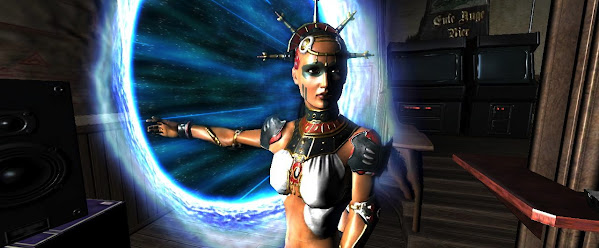Introduction- PRESS START To Play
I’ve been thinking a lot on how we’re missing something vital in our relationship to video games. The secret parts or “Easter eggs” are a metaphor for how reality is malleable via magick. We should see also a metaphor, between our reality as simulation and our relationship to the simulations that we build. Video games constantly obsess over all the same ideas that we do in here, and are predominantly either about Masonry, CIA, psychic abilities, or mythology, ancient aliens or artificial intelligence. There’s something very important, I believe, in how we can “hack” or change a game with a line of code, or by venturing outside a given “reality” by thinking outside the box in a given situation. Here, when I say “reality” I mean the borders of a board, or what used to be known as a level.
For a very long time I’ve been putting off writing about video games. I was always convincing myself that the medium was frowned upon, looked down upon, really, considered like my other holy grail and gateway drug to art and psychology and deep human understandings-comic books, to be a disposable medium. Then I realized I can take what I know about using scholarly references and even what I know about art history, music, performance, modeling and acting, journalism, religion, mythology, archetypes, psychology ad psychoanalysis, Jungian studies, transnational comparative mythology, paranormal phenomenon from a scientific perspective, as well as, researcher's perspective, various systems of the occult, and military philosophy, strategy, and history, including psychological operations, dirty tricks, psychotronic and trauma based mind control, aspects of MK-Ultra, psychedelics and their cultural applications and ceremonies and rituals. I also learned the hard way, that people either quite enjoy games and game discussion, or tend to think they are rotting kids brains or some such; I’m sure you know the type, friends.
I will always defend it as an expansive and enchanting, even mind altering medium, transcendent as it is haunting, the format of open yet designed experience is beyond simulation or “game”. It reached something More than expected, I think some time around 1997, but games have never in their entire history been a stranger to dark, mature, bizarre, macabre, occult and alternative ideas. The paranormal and psychological depth that is now completely normal for the plots and subplots of most games shows a casual evolution, making the entire medium more like it’s major influences- comic books in general and Japanese animation. Interesting to see things like Ghost In The Shell and Total Recall being remade for a culture obviously saturated in that kind of influence.




Comments
Post a Comment